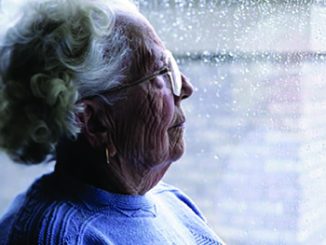

November is National Alzheimer’s Month
By Dixie Ann Black
The Saboteur.
Mom loves music. It soothes her soul like nothing else I know. She is especially fond of ballads from the 70’, 80’s and 90’s. I find an oldies station on the stereo, she puts her feet up in the reclining loveseat and leans back. Her eyes are closed, and I think she is asleep until I hear her humming along.
“That’s Peabo Bryson” she announces in the middle of “By the time this night is over”. Next, she is commenting on Michael Jackson as one of his songs comes on. In a few minutes she is surprising me with titles and artists for almost every other song.
“Do you remember Boys 11 Men?” she asks.
“Look at you!” I say, impressed.
Bob Marley takes the stage with, “Stir it up, little darlin’.” Mom starts to sing with gusto.
But soon she starts wanting more bass in the music.
(This is most likely linked to a memory of a common complaint at Jamaican house parties. Back home, having a strong number of bass in the music was a sign of an excellent sound system.)
The result in the present moment is, she is no longer enjoying the music but seeking how to improve her enjoyment.
It is a sign.
Alzheimer’s, at least in my mother’s case, is characterized by an inability to soak in gratitude for the present moment. There is a constant pursuit of the past, or of something vaguely defined as being better than ‘Right Now’.
I am steps away cooking with my back turned when I hear my mother get up and head toward the stereo. In an instant “Stir it up, little darlin’ is replaced by the frying sound of pure static.
Mom, who no longer reads the remote’s buttons has pressed random buttons and replaced the harmony of the music with the disconnect in her mind. By the time I recover the FM band on the radio Bob and his little darlin’ are long gone. Mom’s pleasure has retreated into the dark shell of confusion that threatens all she knows. She returns to the sofa but her inner confidence is shaken; she has sabotaged her own pleasure. I try to coax her into identifying more songs, but her memories have fled, and I know it will be a while before that ray of joy ventures out again. (DAB)
Fear and Confusion, decisive clues:
When Mom’s symptoms began, no one noticed it at first. She was working a lot of hours. We put it down to stress, lack of sleep and routine aging. She would sleep with every light on in the house, I put it down to fear as she lived alone. Fear and its cousin, negativity, gradually began to overwhelm her. She began to fear driving, even to the neighborhood gas station. She had trouble following the simplest directions. She emphasized the worst in every possibility.
When she lost her sense of smell, the doctor simply shrugged. When the symptoms began to affect her daily life the doctors seemed clueless. Mom would write checks and not mail them, or she would make them out incorrectly. Her diagnosis came only after it was obvious to everyone around her.
Here are some things to keep in mind for you and your loved ones:
Initial symptoms can include loss of smell, forgetfulness, confusion, disorientation, problems with words, repetitive behaviors, depression, anxiety, fear and more.
How does one get Alzheimer’s?
Alzheimer’s is thought to be a buildup of plaque in the brain. As the brain becomes affected by the plaque, a brain substance, acetylcholine, which functions as a chemical messenger in the body decreases. This affects memory among other functions.
https://www.nhs.uk/conditions/alzheimers-disease/causes
No one knows exactly what causes Alzheimer’s, but there are several key risk factors: genetics, aging, pre-existing conditions, nutrition, and lifestyle.
If someone in your immediate bloodline has the disease, this does not mean you will automatically have the disease. There is strong indication that even if you inherit the gene for Alzheimer’s, ‘you do not have to turn it on’ (Awakening from Alzheimer’s with Peggy Starlin). Ongoing research in the field of epigenetics indicate a future where the Alzheimer’s gene expression can be turned off.
Meanwhile an exploration of the environmental component of the disease indicate there is much we can do right now in our daily lives, and here in lies the hope.
Facts instead of Fear: Alzheimer’s has become a fear that stalks the modern world. As a result, we tend to avoid talking about it. This feeds the fear and Alzheimer’s thrives on fear. Let’s educate ourselves and make the subject a part of conversation. Conversations with loved ones about changes as we age can help alleviate fears, as well as nudge us to seek professional direction while the issues can still be addressed.
Talk to your doctor, even if your concerns feel petty and insubstantial. If your doctor is uninformed or disinterested, consider changing to a doctor who will hear your concerns. A cooperative doctor-patient relationship is key, especially in an area with so many unanswered questions.
Some health conditions and the medications used to manage them can mimic or increase your risk of getting Alzheimer’s. Low levels of certain nutrients in the body, chronic stress, poor nutrition, and sleep disturbances can contribute to susceptibility to the disease. Prolonged use of certain medications to treat anxiety, sleep, allergies, depression and more have been implicated in rise in dementia. (https://www.health.harvard.edu/mind-and-mood/two-types-of-drugs-you-may-want-to-avoid-for-the-sake-of-your-brain.)
Get familiar with the details of your own blood work, even the good numbers. Research natural alternatives to address numbers that are off and consult with your doctor before making any changes to your lifestyle. The key here is, don’t wait on the doctor to find natural options. Be proactive.
Go a step further than the routine: If you have significant concerns, (close relatives with mental decline, or concerning changes in yourself) which are not addressed in your routine exam and bloodwork, you can request specific tests. For example, ask for a test of your homocysteine levels (a substance in the blood, high levels of which can indicate mental decline). https://www.webmd.com/alzheimers/news/20030228/elderly-dementia-linked-to-homocystein
You can also request a genetic test called APOE3 to see if you have the gene for Alzheimer’s. https://www.alzdiscovery.org/cognitive-vitality/blog/new-test-makes-it-easy-to-learn-your-apoe-status-but-should-you
To be informed, is to begin to be empowered; to begin to challenge the saboteurs, confusion, and fear, and to dare to march against the wall of Jericho in our own lives.



Be the first to comment